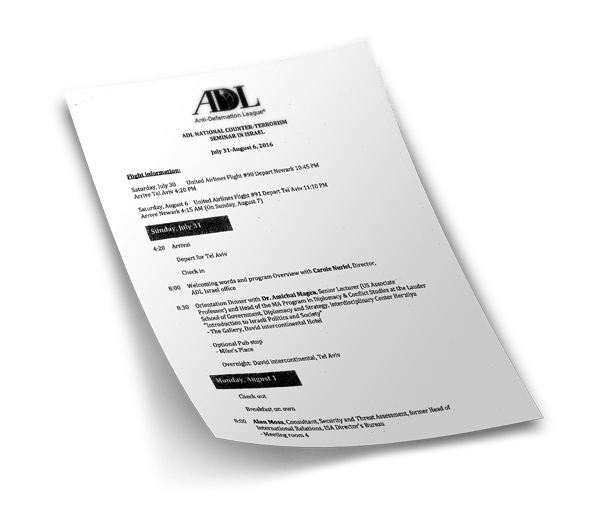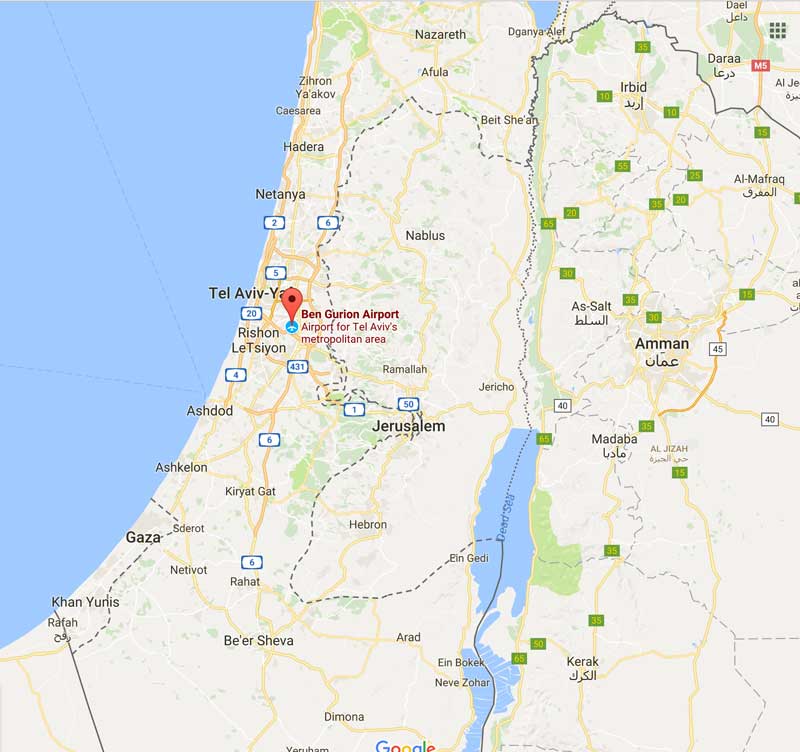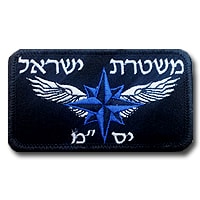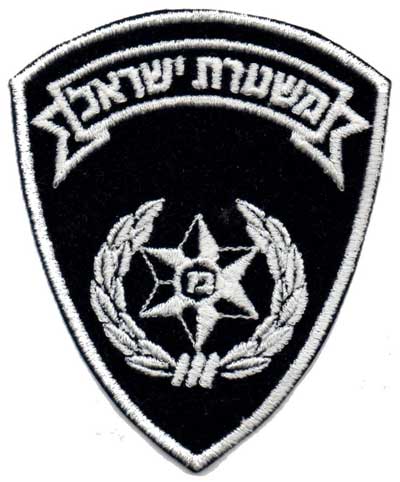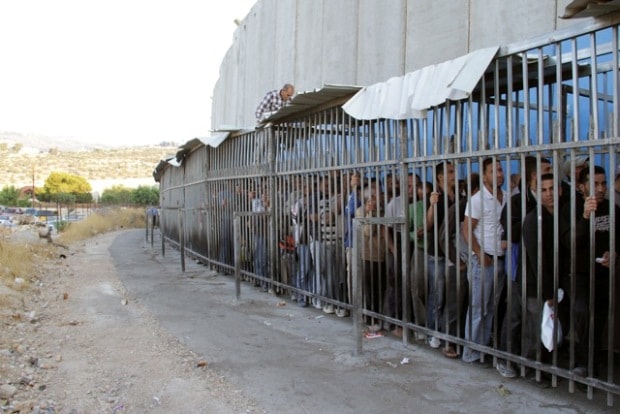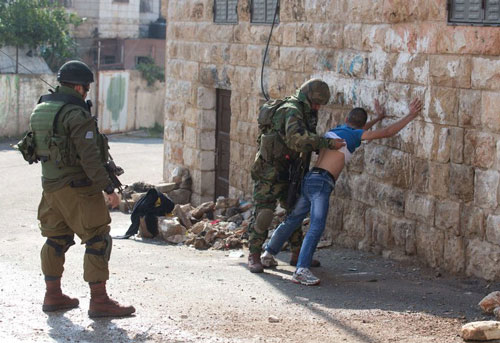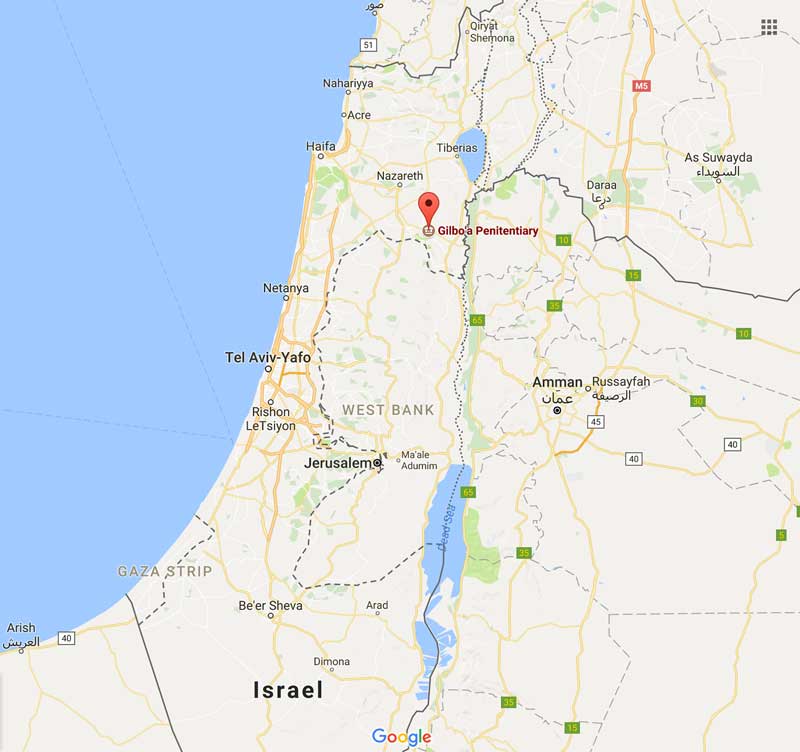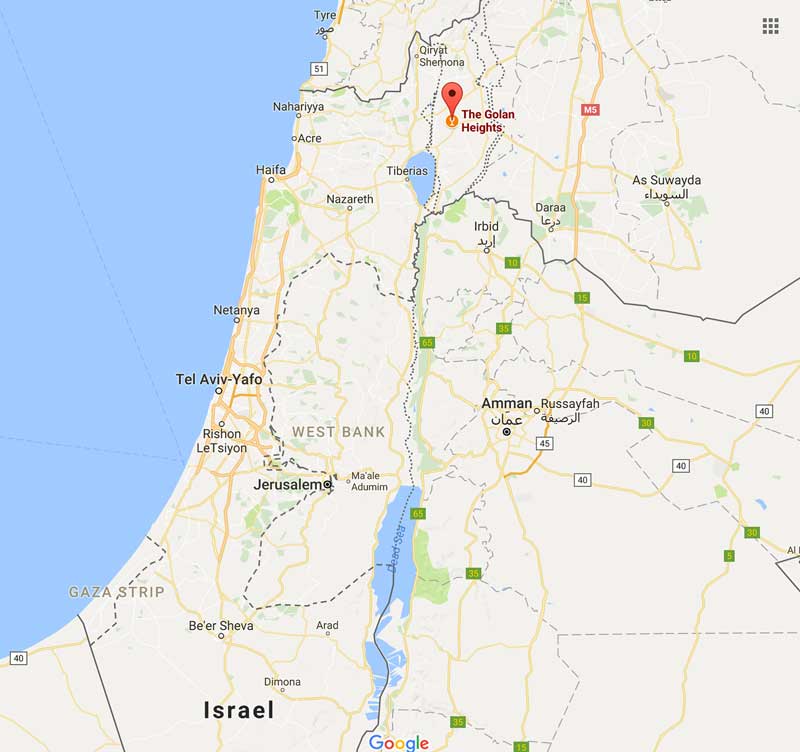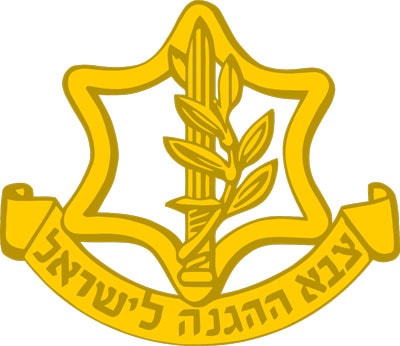The ADL regularly brings top-ranking U.S. law enforcement officers, including police chiefs, as well as homeland security, border patrol and ICE executives, to Israel for trainings with Israeli police, army and security officials. Follow along with the itinerary of the ADL’s National Counter Terrorism Seminar (NCTS).
On the trip, American officers train with the various Israeli agencies who carry out the country’s policies of occupation and apartheid via control, surveillance, discrimination, restrictions of movement, repression of social movements, torture, police violence, and more.
Take a look at some of the key stops on the trip:
DAY
Amichai Magen, Senior Researcher, ICT Terrorism and Governance Desk
The International Institute for Counter-Terrorism (ICT) is a prominent right-wing think tank founded by high ranking Israeli military officials, with deep ties to the Israel’s public and private security and surveillance sectors. In addition to producing islamophobic and anti-Arab analysis on terrorism, ICT sells ‘defense’ consulting, adding it to the ranks of Israeli companies and institutions that claim a ‘special edge’ in the counterterrorism industry and capitalize on Palestinian ethnic cleansing. NCTS delegates meet with former military official and ICT senior researcher Amichai Magen, who has argued for Israel’s continued impunity for war crimes and human rights abuses. In this talk, Magen complained of
“The seepage of international human rights laws into rules that govern war” and claimed that “[w]hen the Geneva Conventions were drafted, no one imagined that non-state actors [such as Palestinians] would be able to use them.”
He has also written that the only error Israel made in its brutal assault on Gaza during Operation Cast Lead was that it didn’t “finish the job.”
For further reading:
- JVP’s Network Against Islamophobia FAQ on the connections between Islamophobia, counterterrorism, and the U.S.-Israel relationship
- Section “Selling the Security State” (beginning on page 42) in “Laboratories of War: United States-Israeli Collaboration in Urban War and Securitization”
- +972 Magazine: “’Wars on Gaza have become part of Israel’s system of governance’: An interview with filmmaker Yotam Feldman” “
DAY
Alan Moss, former head of International Relations, Shin Bet (ISA)
Formed out of the Haganah paramilitary militia group prior to Israel’s founding, the Shin Bet (also known as the Israel Security Agency (ISA) or Shabak) is a key Israeli security organization responsible for monitoring, surveilling and detaining Palestinians in the Occupied Territories and inside Israel. The Shin Bet is notorious for torturing Palestinian detainees – adults and minors – as well as carrying out “targeted assassinations,” all with little legal oversight or accountability.
For further reading:
- “What America Learned About Torture From Israel and Britain”
- “Torture of Palestinian Detainees by Shin Bet Investigators Rises Sharply”
- B’Tselem Report: “The Interrogation Regime: Routine Ill-Treatment”
- Addameer Report: “Children not exempt from widespread torture in Israeli detention”
- “Israeli torture of Palestinian children ‘institutional’”
- “Inside Shin Bet” – Interactive feature on the history and practices of the group
DAY
Roni Tidhar, Airport Security Division Head
Israeli airports managed by the Israel Airports Authority, including Ben Gurion International Airport in Tel Aviv, are known globally for systematic racial profiling, which targets Palestinians, Muslims and Arabs in particular. This pattern has been documented not only by human rights organizations but by the U.S. federal government, and has been explicitly acknowledged – and condoned – by Israel’s High Court. An article covering ADL’s NCTS trip in 2007 describes the delegation’s meeting with Israeli airport officials:
“Unlike in the United States, where racial and ethnic profiling is forbidden, Israeli airport officials explained how they use profiling to identify suspicious passengers, questioning them extensively and performing searches if necessary. Dozens of undercover, armed security officers mill among the passengers, an airport official explained.”
For further reading:
DAY
Yasam
This paramilitary “counter-terrorism” and “riot-control” unit of the Israeli police force draws recruits from combat units in the IDF and Border Police special forces – an example of the deep intertwining of police and military power in Israel. Deployed to attack and disperse nonviolent Palestinian protesters, the unit has a well-documented history of excessive use of force, including physical, verbal, and sexual assault of Palestinian, Mizrahi and Ethiopian citizens of Israel.
For further reading:
- Video and article about a Yasam officer assaulting an East Jerusalem man completely unprovoked
- “Israeli police ambush, assault, and detain relatives of freed Palestinian prisoner”
- Video and article about Yasam officers assaulting an Ethiopian Israeli soldier on the street. Sparking protests against police brutality led by Ethiopian Jews across the country.
- “Prawer protesters beaten, threatened with rape by Israeli police in Haifa”
DAY
Micky Rosenfeld – Spokesman, Israel National Police
Non-Jewish communities living in ‘48 Israel makes up 25% of the population, yet recent analysis has found that 60% of all people arrested by Israeli police between the years of 2011 and 2015 were non-Jewish. Adalah-The legal Center for Arab Minority Rights in Israel notes that “The policy of profiling Arab citizens results in officers singling out Arab passersby as suspects, which ultimately leads to violence and arrests. Additionally, Israeli Police takes specific steps exclusively against Arab citizens like preventative arrests, the arrest of minors during nighttime hours, summonses for interrogation that lead to arrests, and more.” Politicians and senior police officers have also openly called for the extra-judicial killing of suspects. For example, Jerusalem District Police Commander Moshe Edri was quoted as saying, “Anyone who stabs Jews or hurts innocent people is due to be killed.” Ethiopian Israelis and African asylum seekers in Israel also face well-documented racist violence from police. In the words of Tehune Maharat, an Ethiopian Israeli activist, “Many youth were murdered because they were Black. They experienced police brutality, they were beaten, humiliated and abused, just because they were Black. Not for any other reason.” On the NCTS delegation, participants meet with Micky Rosenfeld, spokesman for the Israel National Police. When asked to comment on the police violence against Ethiopian-Israelis in 2015, Rosenfeld flat out “rejected accusations of police racism”. Concerning Palestinians, Rosenfeld routinely refers to the illegally occupied West Bank by the Biblical language adopted by settlers, calling the Palestinian territory “Judea and Samaria”, and during the 2012 Israeli assault on Gaza, Rosenfeld threatened that the government should and could “wipe the whole place out.” He’s also diminished settler violence; when the State Department named the rampant racist anti-Palestinian attacks by settlers in a report on global terror, Rosenfeld was quick to respond: “There’s no comparison whatsoever between criminal incidents with nationalistic motives and terrorist-related incidents.”
For further reading:
- “60% of people arrested by Israeli police are non-Jews” +972 Mag, 2016
- Adalah: The Legal Center for Arab Minority Rights in Israel report
“Extra-judicial executions of Palestinians by Israeli police and security forces” - Human Rights Watch: “Israel/Palestine: Some Officials Backing ‘Shoot-to-Kill’”
- “Anti-Police Protest in Israel Turns Violent” The New York Times, 2015
- “Ethiopian-Israeli soldier beaten by cop seeks plea deal” The times of Israel, 2017
- “The Ethnic Cleansing of Africans in Israel” +972 Mag, 2015
DAY
Checkpoints/Bethlehem
Checkpoints are the central infrastructure used by the Israeli military to impose restrictions on Palestinian movement, preventing Palestinians from moving freely within, to, and from the occupied West Bank and causing severe hardships for millions of Palestinians going about their daily lives–getting to school, the doctor, visiting family, working.
According to the UN, in 2016 there were 572 Israeli checkpoints and other obstacles to Palestinian movement in the West Bank–an area smaller than the state of Connecticut. Checkpoints also use a high-tech discriminatory system of IDs, requiring registration to include ethnicity, religion and biometric data, which then dictates where non-Jews cannot go.
For further reading:
- Human Rights Watch: “Israel/Palestine: Woman Dies after Checkpoint Delay”
- American Friends Service Committee: “Restricted Movement in the Occupied Palestinian Territory”
- Institute for Middle East Understanding: “Israeli Restrictions on Palestinian Freedom of Movement”
- New York Times: “Life Behind Israel’s Checkpoints”
DAY
Commander Ron Gerner/Hebron
Palestinians in Hebron face strangling restrictions, checkpoints, arbitrary arrests, closures and curfews, and vicious attacks by illegal settlers and the Israeli military. Since the Israeli occupation of the West Bank in 1967, Jewish-only settlements have been forcibly established in and around Hebron.
The ongoing, aggressive and violent settlement expansion in Hebron has been carried out with government support and approval. Following the Ibrahimi mosque massacre, in which an Israeli settler massacred 29 Palestinians while they prayed, Israel responded by dividing the city, erecting checkpoints and barring Palestinians from streets in the center of their city. The center of the city, Shuhada street–once a major marketplace and thoroughfare–is now a virtual ghost town. Nonviolent Palestinian activists like Issa Amro of Youth Against Settlements have faced brutal repression and imprisonment for their organizing.
For further reading:
- Institute for Middle East Understanding: “The Ibrahimi Mosque Massacre: 20 Years Later”
- Youth Against Settlements: https://hyas.ps/
- New York Times: “Who’s Afraid of Nonviolence?”
- Vice: “A Famous Palestinian Activist Could Be Sent to Israeli Prison for Years of Nonviolent Protest”
- Jewish Telegraphic Agency: “US lawmakers urge secretary of state to help Palestinian activist going on trial in Israel”
DAY
Sergeant Major Ronit Tubul, Jerusalem District HQ, Israel National Police
In Jerusalem, the Israel National Police has jurisdiction over around 300,000 Palestinian permanent residents of the occupied Eastern half of the city. There, American officers see policing practices such as the extensive and discriminatory mass surveillance of Muslims and Arabs, especially in Jerusalem’s Old City, and excessively violent crowd control measures such as teargas and rubber-coated steel bullets. These measures were on full display during the July 2017 crisis surrounding The Al-Aqsa Compound / Temple Mount, where the Israeli National Police functions as an occupying force in an area that is the third holiest site in Islam and a central locus of Palestinian life in the city.
As thousands of Palestinians protested increased Israeli control of the area that disrupted the status quo of shared control with the Jordanian waqf, the Israel National Police violated Palestinian rights to freedom of assembly and religion. They repeatedly attacked crowds of praying civilians with tear-gas, rubber-coated steel bullets, stun grenades and live fire, injuring nearly 400 in the city in just 10 days.
For further reading:
- The Times of Israel: “Jerusalem police chief: If protests continue, don’t be surprised at casualties”
- The Intercept: “How Israel Became a Hub for Surveillance Technology”
- Institute for Palestine Studies: “Strategies of Surveillance: The Israeli Gaze
DAY
Gilboa Prison
800,000 Palestinians have been detained by the Israeli authorities in the last 50 years of Israeli Occupation, meaning that 40% of Palestinian men have been arrested at least once. What’s more, each year, the Israeli military arrests and prosecutes around 700 Palestinian children in military court, frequently coercing them into signing confessions written in Hebrew. As of April 2017, the Israeli Prison Service incarcerates some 6,400 people, among whom about 500 are in administrative detention and 300 are children. Most Palestinian prisoners are transferred from the occupied Palestinian territories to prisons located within Israel, such as Gilboa Prison in the Galilee, in violation of the Fourth Geneva Convention.
On April 1st, 2017, Palestinian prisoners held at Gilboa voted unanimously to join the mass prisoners hunger strike that began on Palestinian Prisoners Day, April 17, 2017. The strike lasted 40 nights and over 1,500 imprisoned people participated, making it one of the longest mass hunger strikes in Palestinian history. The demands of the prisoners highlight the systematic denial of the most basic rights and services. They included abolishing detention without trial, abolishing solitary confinement, allowing photographs with family during visits, allowing access to books, installing public landlines in prison wings, allowing phone conversations with family members, and ending mistreatment of prisoners in vans during transfer. The 2017 strike forms part of a long history of Palestinian grassroots resistance to incarceration, and comes just 5 years after the last mass strike in April, 2012, in which over 2,500 prisoners participated.
For further reading:
- Policy Briefing from the European Parliament: “Violating international legal obligation: Israel’s treatment of Palestinian prisoners”
- Corporate Watch report “Imprisoned Voices”
- Amnesty report: “Israel must end unlawful and cruel policies toward palestinian prisoners”
- Addameer report “Aggressions by Special Units of the Israeli Prison Service against Prisoners and Detainees during Transfers and Raids”
- Report on Child Detention: No Way to Treat A Child
- Congressional letter to Obama about Israeli Child Detention
- 2017 Hunger Strike, History and Background: Get the Facts on Palestinian Hunger Strikes
- Analysis: Feminist Perspectives on the Palestinian Prisoner Hunger Strike
DAY
Golan Heights, Major (Res.) Sarit Zehavi
Israel occupied the Syrian Golan Heights in 1967, forcibly displacing over 130,000 Syrian inhabitants. Israel unilaterally annexed the territory in 1981, and there are currently more than 30 Jewish settlements in the Golan, with an estimated 20,000 settlers. The remaining native Syrian population numbers approximately 25,000, and are mostly members of the Druze community.
While in the Golan, NCTS delegates meet with private business owner Sarit Zehavi, who served 15 years in the Israeli Defense Forces and specialized in Military Intelligence within the IDF Northern Command. The Northern Command has been centrally involved in the military assaults, war crimes and atrocities carried out by the IDF against Lebanon. For example, on April 18th, 1996, the Northern Command shelled a clearly marked U.N. compound for internally displaced people in the Lebanese village of Qana. One hundred people–women, children, elderly people, U.N. personnel, and those too poor or ill to escape the areas of shelling–were killed, and hundreds were wounded. The targeting of U.N. camps formed part of a larger, deliberate IDF strategy of killing civilians in Southern Lebanese villages during the 1996 military operation codenamed “Grapes of Wrath”.
Further Reading:
DAY
Nitzan Nuriel
Nitzan Nuriel held high level positions during his time in the IDF, where he deployed brutal military tactics against Palestinians in the Occupied West Bank and Gaza as well as Lebanese civilians in the 2006 Israeli invasion of Lebanon. Nuriel was deputy division commander during that invasion, in which Human Rights Watch found
“the Israel Defense Forces (IDF) was responsible for serious violations of the laws of war… result[ing] in the deaths of at least 1,109 Lebanese, the vast majority of whom were civilians.”
And during his tenure as the Commander of the Golani Brigade during the first intifada, he gave orders to have Palestinian detainees beaten as a punitive measure. Leveraging this military record, Nuriel went on to head the Counter-Terrorism Bureau in the Israeli prime minister’s office from 2007 to 2012, and is now an associate at the International Institute for Counter-Terrorism, an Israeli think tank with close ties to the military and intelligence establishment, as well as an advisory board member of World Patent Marketing.

